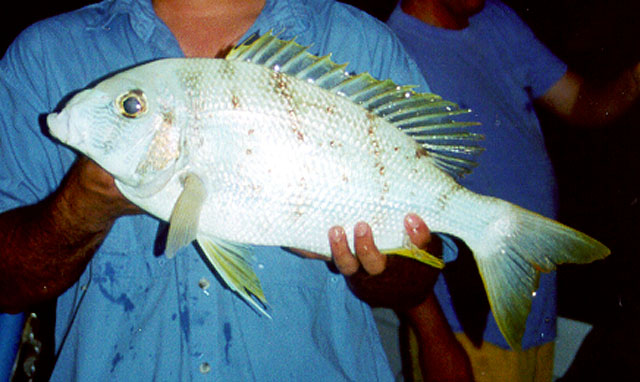| Lethrinidae (Emperors or scavengers), subfamily: Monotaxinae |
| 40 cm TL (male/unsexed) |
|
reef-associated; marine; depth range 8 - 40 m, non-migratory |
| Western Pacific: Australia (east coast of southern Queensland and the southern half of the Great Barrier Reef). The name bitorquatus has been applied to this species, particularly by Australian authors. |
|
Dorsal spines (total): 10-10; Dorsal soft rays (total): 10-10; Anal spines: 3-3; Anal soft rays: 9-10. Inner surface of pectoral fin without scales. Overall color is silver or whitish, often light brown or olive on upper sides. Each scale on sides has a brown spot forming longitudinal rows. Fins are uniformly clear to slightly yellowish. Fresh specimen have scattered brown flecks on sides. A blackish bar that runs through the eye may also be evident. |
| Generally solitary over sand or rubble areas adjacent to reefs . Feeds mainly on benthic invertebrates. Sometimes has a distasteful iodine flavor; however, untainted fish are good to eat. |
|
Least Concern (LC); Date assessed: 09 March 2015 Ref. (130435)
|
| harmless |
Source and more info: www.fishbase.org. For personal, classroom, and other internal use only. Not for publication.
